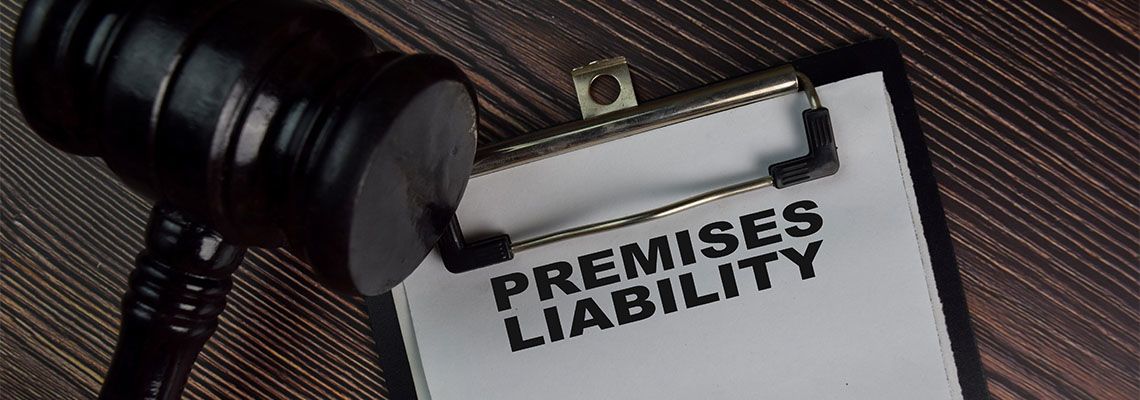
Premises Liability and Foreseeable Harm
If you suffer an injury on someone else’s property, then the legal concept of premises liability comes into focus. Under premises liability, you as the injured party can hold the property owner or operator responsible if that person or entity knew or should have known a danger existed and failed to warn others or correct the hazard.
Under Texas law, “premises” is a broad category. The state’s Civil Practice and Remedies Code says that premises can include “land, roads, water, watercourse, private ways, and buildings, structures, machinery, and equipment attached to or located on the land, road, water, watercourse, or private way.”
If you’re in a retail establishment, for instance, and you slip and fall on a wet surface that has not been roped off and suffer head, neck, or back injuries, then you can have a claim under premises liability. Generally, your claim would proceed under the concept of negligence; that is, the owner or operator failed to warn customers or exercise due caution in regard to the wet floor.
However, (and this can be a big however,) the plaintiff or claimant must show that the owner/operator either knew or should have known that the danger existed. If someone just broke a bottle of cleaning solvent on the floor minutes before the accident, would that qualify as known or should have known?
If you or a loved one has been injured on someone else’s property in or around Houston, Texas, contact us at Ellis & Thomas, PLLC. Our legal team of personal injury attorneys will review the circumstances with you, advise you of your best options going forward, and then negotiate with the insurer for the best settlement possible. If warranted, we will also file and pursue a personal injury lawsuit.
Ellis & Thomas, PLLC proudly serves clients throughout Harris County, Fort Bend County, Montgomery County, and Brazoria County.
Premises Liability in Texas
As described above, premises liability is a broad category under Texas law. If you’re injured out swimming in a private lake, the owner/operator is responsible for making sure your safety is a prime consideration. In almost all premises liability/injury situations, the owner of the property will have some form of liability insurance through which you can make a claim.
Don’t rush to make an insurance claim by yourself, however. Seek out the advice and counsel of an experienced personal injury attorney first, and then let that person handle all correspondence, discussions, and negotiations with the insurer and its representatives. Insurance companies use trained professionals known as claims adjusters to get you to say or admit to something so they can lay the fault on you, wholly or partially, to either deny or lowball your settlement.
At Ellis & Thomas, PLLC, we are well aware of the tactics used by claims adjusters, and we will gladly conduct all interactions with them to press your claim. While you recover, we’ll work on getting you the compensation you deserve.
Foreseeable Harm
Earlier, it was noted that under premises liability law, the owner or operator of a “premise” must have known or should have known that a dangerous condition existed. Another way of looking at this is to use the phrase “foreseeable harm.”
Say a property owner in a neighborhood filled with young children has a swimming pool open to public view, but he leaves the gate open. A neighborhood kid walks through or past the open gate and then suffers injuries falling into the pool or tripping over a lounge chair. Was this foreseeable?
Another aspect is that, if someone is injured on another party’s premises, the resulting injury must be a foreseeable consequence of the dangerous condition. Using the earlier example, slipping and falling on a wet surface and injuring one’s head, neck, or back are foreseeable consequences. Other injuries might not be, such as abdominal bleeding.
In other words, if the injuries for which you are making an insurance claim or filing a lawsuit are not a foreseeable consequence of the danger you faced, you may have a more difficult time prevailing.
Private Property vs. Public Property Claims
Owners of private property are covered under premises liability laws, as discussed above, and you can pursue an insurance claim and/or a personal injury lawsuit. However, if you are injured on government property, then it gets more complicated. In general terms, you cannot sue a governmental agency without obtaining its permission to do so.
This is also covered under the state’s Civil Practice and Remedies Code. If you’ve been injured on government property, contact us immediately at Ellis & Thomas, PLLC.
Possible Recoverable Damages
If you do make a claim or file a lawsuit, damages (compensation) are available for both economic and non-economic losses. Economic losses include medical and related expenses and any wages lost because of recovery time. Non-economic losses include the pain and suffering you feel.
Compassionate Legal Assistance
If you feel certain you were injured on someone else’s property because of negligence and inattention to dangerous conditions, do your due diligence and get all the information about the owner/operator and their liability insurance. Take pictures or videos of the scene and write down everything as you remember it. And of course, take care of your injuries above all else.
Before submitting a claim to the insurer, however, contact us at Ellis & Thomas, PLLC if you’re anywhere in or around Houston. We will handle every aspect of your claim for you so that a claim adjuster can’t take advantage of you. You can rest and recover while we work for the just compensation owed to you.
